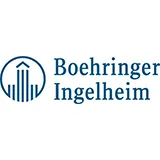Australian Bronchiectasis Consortium (ABC)
The Australian Bronchiectasis Consortium (ABC) is a group of experienced doctors, researchers, and allied health professionals from Australia and New Zealand. They work together to:
- Share knowledge and ideas
- Help advance research
- Improve care for people with bronchiectasis.
The ABC started by looking after the Australian Bronchiectasis Registry (ABR). Now, by uniting leading professionals, researchers, clinicians, and stakeholders in the field of bronchiectasis, the ABC seeks to drive innovation, promote knowledge exchange, undertake disease surveillance, and address the unmet needs of patients across Australasia.
Australian Bronchiectasis Registry (ABR)
The ABR collects information from children and adults with bronchiectasis across Australia. While international groups also collect similar information, the ABR focuses on the Australian setting. This helps us understand the disease better here and improve care, guide research and help with health policies.
Bronchiectasis is a lifelong disease that often starts in childhood. By collecting information from all ages, the ABR helps us understand how the disease changes over time, what treatments work best, and how people respond to them.
The ABR is based on our core values of equity, care based on evidence, and the inclusion of people with lung disease. It makes sure to include people from rural and remote areas, Aboriginal and Torres Strait Islander people, and other groups who might not get the same level of diagnosis and care.
The ABR collects information to:
- Understand what causes bronchiectasis in Australia and how many people have it
- Measure the burden of disease and treatment
- Help create and test new medications
- Improve quality of life through informed care
- Understand the financial impact of the disease
- Make sure everyone has fair access to the best care.
By linking health information with Medicare and medication claims data, the ABR helps researchers see how people use healthcare, what treatments they get, and their long-term health. This makes it one of the most comprehensive bronchiectasis information sets in the world.
While the ABR focuses on Australians, we also work with international partners. These include the New Zealand Bronchiectasis Registry (NZBR), the COPD Foundation (based in the US), and the European Multicentre Bronchiectasis Audit and Research Collaboration (EMBARC). This helps us share knowledge and speed up improvements in bronchiectasis care and research worldwide.
How patients can get involved
If you go to one of the hospitals or clinics that are part of the ABR, your respiratory physician may invite you to take part during your visit or by mail.
We can’t sign people up directly at Lung Foundation Australia. To find a centre that is part of the ABR, please contact our team at [email protected].
How health services can join the ABR
Only hospitals or health services that have obtained ethics and governance approval can join the Australian Bronchiectasis Registry. Each site needs to get approval from the lead Human Research Ethics Committee (HREC) and relevant governance office before they can begin collecting data.
The ABR operates under central ethics approval from the HREC – CRGH of the Sydney Local Health District (HREC/15/CRGH/225). The Children’s Health Queensland HREC has also approved the project to include children and teenagers.
Our ABR team can:
- Assist you with sourcing ethics and governance approvals.
- Support you with training and ongoing help for data collection, entry and reporting.
What are the benefits of joining the ABR?
Joining the ABR offers many benefits for your health service:
- National benchmarking: Your site will receive reports twice a year. These reports compare your patient data and clinical practices against the national average. They include insights into:
- Patient demographics
- Diagnostic profiles
- Clinical characteristics (for example: how often they have flare-ups, lung function)
- Timelines and appropriateness of care (for example: diagnostic testing, use of guideline-based treatments).
- Access to your site’s data: You can safely look at your own patient data whenever you need to. This can be used to improve care or for approved research projects
- Research opportunities: The ABR can support with patient recruitment for other ethically approved research studies when appropriate
- Professional connection and knowledge sharing: Joining means your site is part of a national network of healthcare professionals and researchers. This allows you to collaborate, learn from each other, and share the best ways to care for people living with bronchiectasis.
Find out more
For more information or to ask about joining the ABR, please contact our team at [email protected].
Helpful links
- Information for people living with bronchiectasis and their carers.
- Bronchiectasis Toolbox for healthcare professionals who care for children or adults with bronchiectasis.
Helpful resources

Prof Lucy Morgan
Mucociliary clearance, developing a new way of measuring clearance for patients impacted by Chronic Obstructive Pulmonary Disease (COPD)
The Australian Bronchiectasis Registry is supported by Boehringer Ingelheim.

Was this page helpful?
Good job! Please give your positive feedback
How could we improve this post? Please Help us.